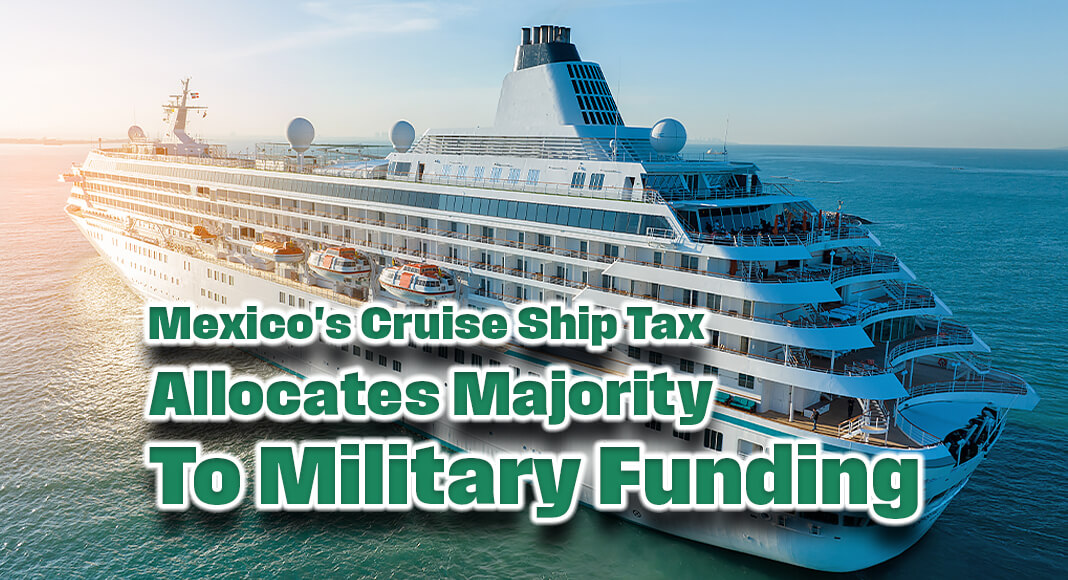
Texas Border Business
Texas Border Business
Mexico’s Congress has approved a controversial $42 per person tax on cruise passengers docking at its ports, sparking debates about its potential effects on the nation’s thriving cruise tourism sector. Set to take effect next month, the tax aims to boost government revenue, with two-thirds allocated to military funding—a decision drawing significant criticism.
Cruise passengers, previously exempt from tourist taxes under the “in transit” category, will now face this fee whether they disembark. Popular destinations like Cozumel, which hosts millions annually, are at the heart of the debate. Critics argue the tax could deter travelers and threaten Mexico’s competitive edge in the Caribbean market.
A recent example highlights the potential impact: Under the new policy, a Texas family of ten visiting Cozumel would have paid an additional $420. This cost could discourage families from staying in the future.
The cruise industry has vehemently opposed the tax, warning it could drive tourists toward more affordable Caribbean destinations like Jamaica. The Florida-Caribbean Cruise Association (FCCA) noted that the tax would make Mexican ports 213% more expensive than the average Caribbean destination, threatening an economic sector that constitutes 40% of the GDP in states like Quintana Roo.
Local businesses and jobs tied to the cruise industry also face uncertainty. According to AMANAC, the sector supports 20,000 jobs in Mexico, many of which could be jeopardized if passenger numbers decline.
The tax’s swift implementation has left cruise lines scrambling to adjust pricing for 2025 itineraries already sold. FCCA CEO Michele Paige emphasized the lack of dialogue with the industry, which could lead to confusion and dissatisfaction among travelers.
Adding to the controversy is the allocation of funds. Unlike other destinations that use tourism fees to address infrastructure and environmental issues, Mexico’s tax channels the majority of proceeds to military funding, raising questions about its alignment with tourism development needs.
Tourism experts, including James Ferrara, stress the importance of cooperation among the government, cruise lines, and stakeholders to develop sustainable solutions that balance revenue generation with preserving Mexico’s reputation as a premier cruise destination. Without such efforts, the tax could disrupt an industry vital to Mexico’s economy, pushing it into uncharted waters.














